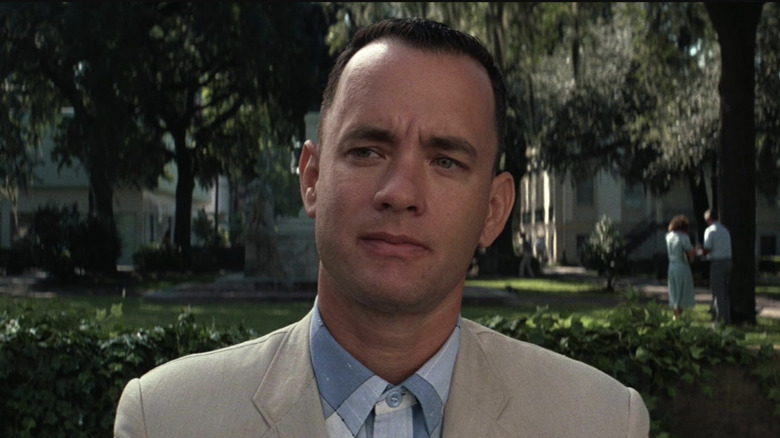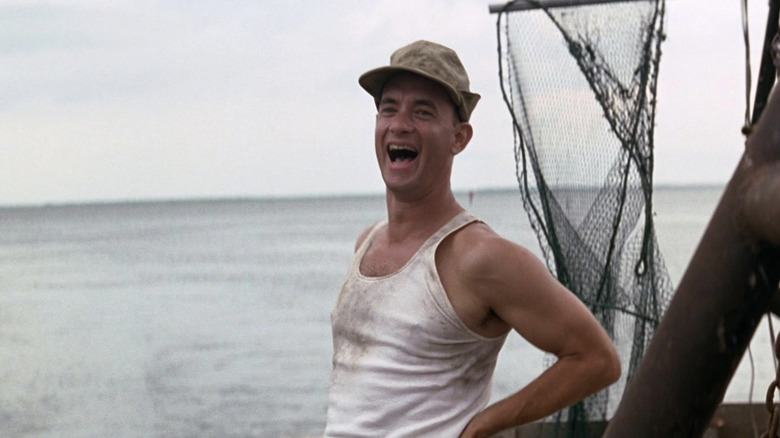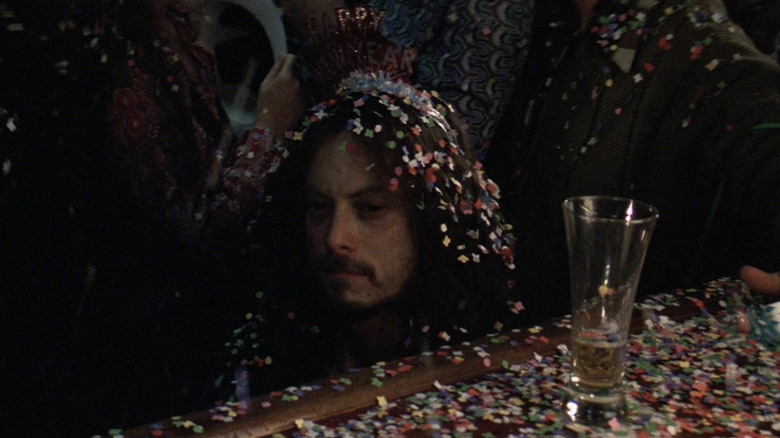Why Forrest Gump Was A Double-Edged Sword For Robert Zemeckis
When we think of Hollywood, our brain conjures images of gussied-up celebrities and crowded red carpets. It's not our fault. For us everyday folk, Tinseltown is another planet and celebs are its native species, whose weaknesses include paparazzi cameras and designer clothes. We can't help but be dazzled by the spectacle, but a simple truth is obscured by the blinding lights of glitz and glamor. Making a film is hard work.
Film productions typically shoot 12 hours a day, which doesn't include the hours it takes to prepare beforehand, so film crews typically work 14 or 15-hour days. That leaves enough time to go home, throw some food down your throat, get a few hours of sleep, and get right back to it the next day. For a while, the production is your life, because there isn't time for anything else. For devoted filmmakers, these long days on set are exhilarating and they never want them to end. The experience can be so consuming that some filmmakers suffer negative effects when it's over.
In the DVD and Blu-ray commentary of "Forrest Gump," Director Robert Zemeckis spoke about suffering a year-long depression after the film wrapped.
'I'm Forrest... Forrest Gump.'
Forrest Gump is one of Tom Hanks' most famous roles, and one of the reasons the film was so successful, but Zemeckis was more interested in the story of the film:
"I had no real desire or compulsion to make a movie about a guy with a low IQ, but it seemed to be the right character, and I kept wanting to know what was going to happen to this character in this strange story ... How is this going to end? What was going to happen?"
What doesn't happen? Gump meets Elvis and John F. Kennedy, goes off to war in Vietnam, becomes a ping pong champion, and a shrimp boat captain. The character stumbles into defining moments of American history without fully understanding their significance, but he recounts them with an endearing innocence and sincerity.
Zemeckis initially dismissed the character, but audiences fell in love with Gump's big heart and charming outlook on life. When he looks back, the director realizes the weird story of Forrest's life is full of relatable life experiences:
"When I really think about it, what I found compelling about the story was it was this story about all different types of love. Love between friends, between mother and sons, son and mother, romantic love, friendship, you know, it was just all this stuff, and grieving, you know it had all this great stuff in there ... Which is why I think the film was very popular."
The letdown
"Forrest Gump" was released in 1994 and became a massive success. Audiences loved the saga of Gump and all his philosophies. Suddenly, friends were "like peas and carrots" and "life was like a box of chocolates." And everyone hated Jenny.
The film won six Oscars in 1995, one of which went to Zemeckis for best director, but even an Academy Award couldn't replace the thrill he experienced making the film:
"So many filmmakers constantly work because they never want to deal with the letdown. You always go through withdrawal when you finish a project. Especially when it's something where everyone is a joy to work with and everyone is doing such great work. And where the emptiness comes from is all that, you know, all this passion goes away. You know, it's like everyone was so passionate about this movie and you want that with you all the time."
After spending months on a project, especially something as intense as a film, it can be hard to accept that it's over. Zemeckis had such a difficult time moving on after "Forrest Gump" that he suffered a year-long depression:
"A year after this movie was done I went into a deep, you know, severe depression ... It had nothing to do with the success of the movie. It was just about being depressed because this wonderful experience in your professional life was over. That's the good news and the bad news about making movies. They end. They always end. You're always going to be done with them."
"Forrest Gump" is all about life lessons and one of the hardest for all of us, including Zemeckis, is learning to let go.


